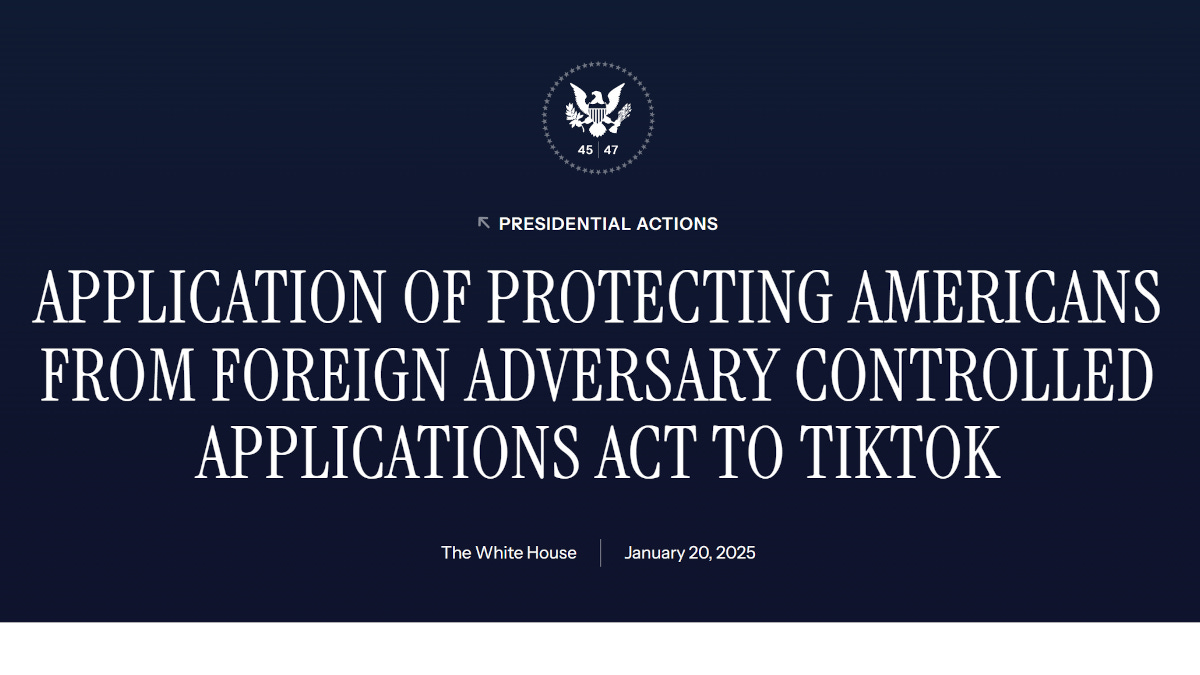Tick-tock vis-a-vis TikTok
On tariffs, cybersecurity, and the very bad things that could soon happen to American companies overseas
Not quite 60 days have elapsed since China targeted companies like Google with retaliatory measures in response to tariffs imposed by the United States on Chinese goods. It's a passage of time worth noting in light of the April 5th deadline for a sale of TikTok, which was set by an arbitrary 75-day extension created by the Executive Branch.
■ For the entire time the TikTok clock has been ticking, any reasonable person should assume that Chinese officials have been cooking up additional ways to retaliate against American companies. China will want to retaliate for the tariffs in general, but the TikTok dispute provides a useful focal point.
■ The original ban on TikTok was one thing; it may have been a bit ham-fisted, but it was a fairly clear and straightforward response to cybersecurity concerns. Worries about probable ties between the app and the Chinese government seem particularly well-founded in light of how that government responded to the threats of closure.
■ But suspending the ban in order to entertain a forced sale under duress looks like quite a different thing. And if it goes through, there's certainly a non-zero chance that China will attempt a mirror-image forced sale of some American digital asset.
■ So many other things have happened in the last 70 days or so that it's easy for people to lose track of the individual details, but short memories are dangerous. What happens if the President appears to have forced a sale of TikTok to one of his friends? Under those conditions, would anyone actually come to the defense of, say, Microsoft, if the Communist Party were to demand a sale of Microsoft's large operation in China? We have wandered into hazardous territory, and the more capricious American behavior appears, the more we ought to worry about the possible consequences for our interests abroad.



